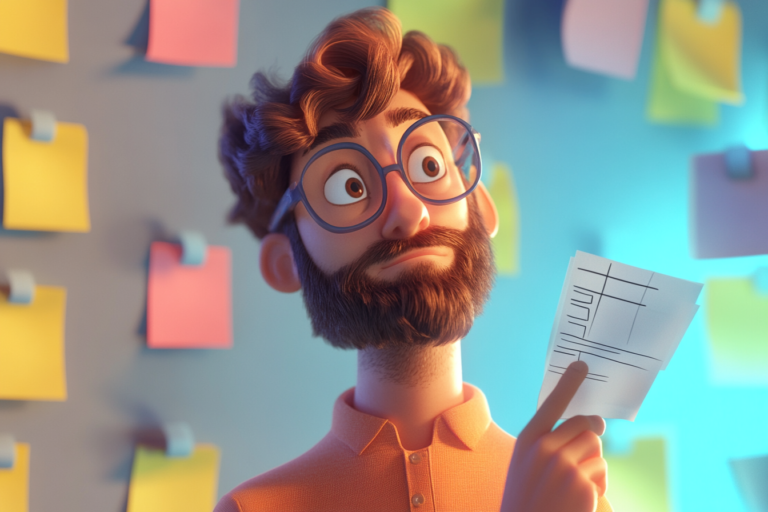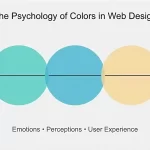The TL;DR for Chronically Rushed Readers
-
Learning isn’t just for kids – your brain craves knowledge like a toddler craves sugar
-
Embrace the “eternal student” mindset (minus the student loans)
-
Motivation is your learning superpower – harness it like Thor’s hammer
-
Adapt or die (dramatically speaking) in our ever-changing world
-
Personal growth isn’t just a buzzword – it’s your ticket to awesomeness
-
Lifelong learning is the Swiss Army knife of skills – versatile and always handy
Welcome to the Never-Ending School of Life
Remember when you thought graduation meant the end of learning? Oh, sweet summer child. Welcome to adulthood, where the learning never stops – and that’s a good thing! Lifelong learning isn’t just a fancy term educators throw around to justify their jobs. It’s your ticket to staying relevant, adaptable, and dare I say, interesting at dinner parties.
But fear not, dear reader. This isn’t about forcing yourself back into a stuffy classroom or burying your nose in dusty textbooks. No, we’re talking about embracing a lifestyle of curiosity, growth, and occasional “Aha!” moments that make you feel like you’ve unlocked a secret level in the game of life.
So, buckle up, buttercup. We’re about to embark on a journey through the wild and wonderful world of lifelong learning. No hall passes required.
Why Bother? The Perks of Being a Perpetual Student
Your Brain: Use It or Lose It
Think of your brain as that fancy gym membership you got on New Year’s Day. If you don’t use it regularly, it starts to get a little… flabby. Learning new things is like a CrossFit workout for your neurons, keeping them fit, flexible, and ready to tackle whatever life throws at you.
Do: Challenge your brain daily with puzzles, new skills, or even learning a few words in a new language. Don’t: Let your brain veg out on a strict diet of reality TV and social media scrolling.
Career Supercharger
In today’s job market, being a one-trick pony is about as useful as a chocolate teapot. Continuous learning helps you stay ahead of the curve, making you more valuable than that coworker who still thinks “the cloud” is something you see in the sky.
Use Case: Sarah, a marketing manager, took online courses in data analytics. She’s now the go-to person for interpreting campaign results, earning her a promotion and a fancy new title.
Personal Growth: Not Just for Plants
Learning isn’t just about facts and figures. It’s about expanding your horizons, challenging your assumptions, and becoming a more well-rounded human being. Plus, it gives you something interesting to talk about besides the weather and your neighbor’s questionable fashion choices.
Tip: Try the “Learn One New Thing a Day” challenge. It could be a fun fact, a new word, or how to fold a fitted sheet (still a mystery to most).
The Fountain of Youth (Sort Of)
While we can’t promise you’ll live forever, studies show that lifelong learners tend to stay mentally sharp well into their golden years. So, while you may not be able to avoid gray hair, you can at least keep your mind as spry as a twenty-something’s.
Fun Fact: The oldest person to earn a college degree was Nola Ochs, who graduated at 95. Talk about lifelong learning goals!
Strategies for Becoming a Learning Machine
1. Embrace Your Inner Curious George
Remember how kids ask “Why?” about everything? Channel that energy. Curiosity didn’t just kill the cat; it made it smarter first. Ask questions, explore new topics, and don’t be afraid to dive down the occasional Wikipedia rabbit hole.
Do: Keep a “curiosity journal” to jot down questions and interesting topics you encounter. Don’t: Be afraid to ask “dumb” questions. The only dumb question is the one you don’t ask.
2. Set SMART-ish Goals
We’ve all heard of SMART goals (Specific, Measurable, Achievable, Relevant, Time-bound). But let’s add a twist: make them SMART-ish. Yes, have a plan, but don’t be afraid to deviate if something shiny catches your eye. Learning should be structured chaos, not a military operation.
Example SMART-ish Goal: “I’ll learn the basics of Python programming in 3 months, unless I get distracted by the fascinating world of beekeeping along the way.”
3. Mix It Up: The Learning Buffet Approach
Don’t limit yourself to one learning method. Try a bit of everything:
|
Method |
Example |
Fun Factor |
|---|---|---|
|
Online Courses |
Coursera, edX |
7/10 (Pajamas allowed) |
|
Books |
Good old-fashioned reading |
8/10 (Smell those pages!) |
|
Podcasts |
Learn while you commute |
9/10 (Multitasking win) |
|
Hands-on Projects |
DIY adventures |
10/10 (Potential for hilarious fails) |
|
Virtual Reality |
Immersive learning experiences |
11/10 (Welcome to the future!) |
4. Find Your Tribe of Fellow Nerds
Surround yourself with other lifelong learners. Join book clubs, attend workshops, or start a “Learn Something New” challenge with friends. It’s like peer pressure, but for personal growth!
Tip: Create a “Learning Circle” where each member teaches the group something new each month.
5. Embrace Failure: The Ultimate Teacher
Remember, every mistake is just a badly worded lesson. Embrace your failures, learn from them, and then brag about how wise you’ve become. It’s not a setback; it’s a plot twist in your personal development story.
Do: Keep a “Failure Log” to track what you’ve learned from your mistakes.
Don’t: Let fear of failure stop you from trying new things. (Unless it’s skydiving without a parachute. Don’t do that.)
Staying Motivated: When the Learning Gets Tough
The “Future You” Visualization Technique
Picture yourself in 5 years. Now, imagine two scenarios:
-
You’ve learned nothing new. You’re still using the same jokes from 2023 and think TikTok is a type of breath mint.
-
You’ve embraced lifelong learning. You’re now fluent in three languages, can code a basic app, and make a mean soufflé. Plus, your jokes are actually funny.
Which “Future You” seems more appealing? Use this vision to fuel your motivation.
Tip: Create a vision board of your “Future Learned Self” to keep you inspired.
The “Treat Yo’ Self” Learning Reward System
For every learning milestone you hit, reward yourself. Finished a challenging book? Ice cream time! Completed an online course? Spa day! Just don’t go overboard, or you’ll end up broke but very knowledgeable.
Do: Set up a reward system that motivates you without breaking the bank. Don’t: Use food as your only reward. Your waistline will thank you.
The “Knowledge Flex” Strategy
Use your new knowledge to impress (or annoy) your friends and family. Nothing motivates quite like the ability to drop random facts at dinner parties or solve your aunt’s tech problems with your newfound coding skills.
Use Case: Tom learned basic plumbing skills online and became the family hero when he fixed a leaky faucet at Thanksgiving dinner.
Adapting to New Learning Challenges: The Chameleon Approach
Embrace the Digital Revolution (Resistance is Futile)
Technology is changing faster than fashion trends in the ’90s. Instead of running away screaming, embrace it. Learn to code, master social media, or at least figure out why your printer keeps jamming. The machines are coming, so you might as well befriend them.
Do: Stay updated on tech trends by following tech news sites or podcasts. Don’t: Assume you’re too old to learn new tech. Your grandma is on TikTok, for crying out loud!
Cross-Pollinate Your Skills
Don’t just stick to one area. Be a Renaissance learner! Combine skills in unexpected ways. Who knows? Your knowledge of ancient Greek philosophy and modern dance might lead to the next big TED Talk sensation.
Example: A chef who learns about chemistry can create mind-blowing molecular gastronomy dishes.
The “Beginner’s Mind” Jedi Mind Trick
Approach each new learning challenge with a beginner’s mindset. It’s liberating to admit you don’t know everything. Plus, it’s a great excuse when you mess up. “Oops, I’m new at this!” works wonders.
Tip: Start each new learning adventure by writing down what you don’t know. It’s humbling and helps identify your learning goals.
The Grand Finale: Your Learning Legacy
Congratulations! You’ve made it to the end of this blog post, which means you’re already practicing lifelong learning. Give yourself a pat on the back, a gold star, or whatever form of self-congratulation floats your boat.
Remember, lifelong learning isn’t about becoming a know-it-all (leave that to your cousin at Thanksgiving dinner). It’s about growing, adapting, and becoming the best version of yourself. It’s about facing the world with curiosity, resilience, and maybe a few more interesting anecdotes at parties.
Your Lifelong Learning Toolkit
-
Curiosity Journal
-
SMART-ish Goal Planner
-
Failure Log (aka “Wisdom in Progress”)
-
Vision Board of Future Learned Self
-
Reward System (that doesn’t involve eating your weight in chocolate)
-
Tech News App (to keep up with our robot overlords)
-
“Beginner’s Mind” Notebook
So go forth, you magnificent learning machine! Embrace the chaos of knowledge, the thrill of discovery, and the occasional existential crisis that comes with realizing how much there is to learn. Your future self (and your brain cells) will thank you.
Now, if you’ll excuse me, I have a documentary about the mating habits of sea slugs to watch. Hey, you never know when that information might come in handy!
Final Do: Make learning a daily habit, even if it’s just for 15 minutes.
Final Don’t: Ever stop being curious. The day you stop learning is the day you stop living (dramatically speaking, of course).









